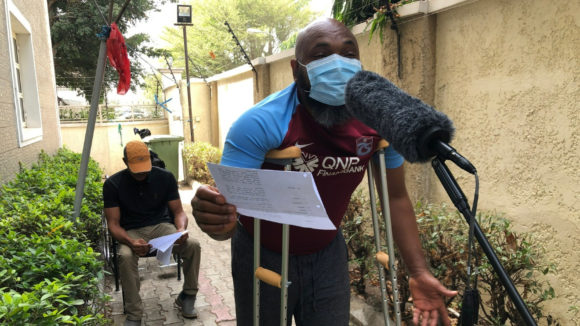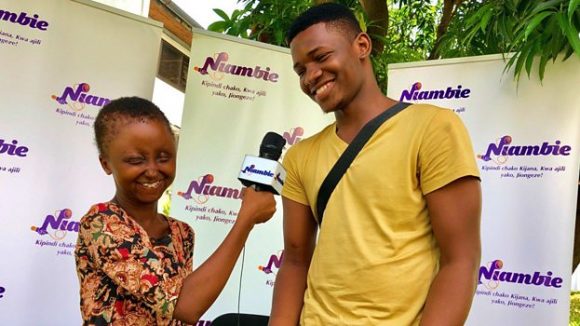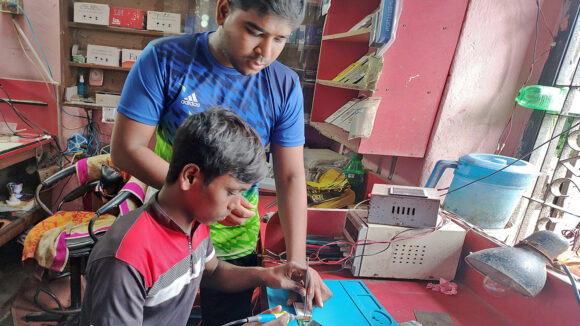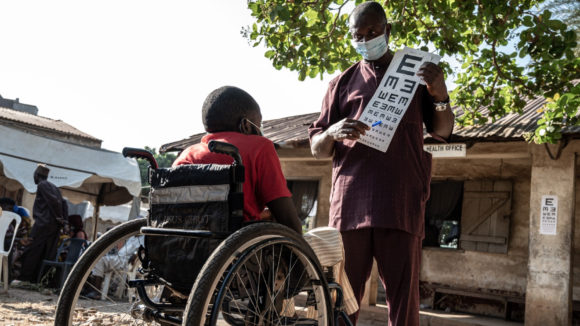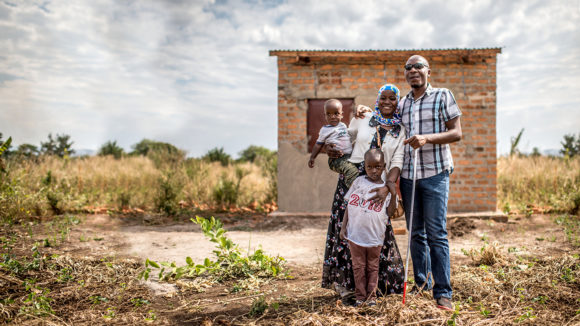We’re tackling negative stereotypes around disability and gender and promoting inclusion in communities.
Our work on stigma and discrimination
People with disabilities often face enormous barriers when they try to get an education, earn a living or access healthcare because of the misconceptions people have about their needs and abilities.
Across almost all of our projects we work with communities to change negative attitudes and behaviours towards people with disabilities.
Some of our projects have a specific focus on using social behaviour change to counter disability stigma and discrimination within societies more broadly.
Our projects
Radio drama to reduce stigma and discrimination in Nigeria
Country: Nigeria
Duration: November 2019 – September 2021
Donor: UK aid
Partners: BBC Media Action
In this project, BBC Media Action worked with people with disabilities to adapt the popular radio drama Story Story to address discrimination by including characters and storylines reflecting the lived experiences of people with disabilities. The drama reached 3.96 million people across six focal states in north-east Nigeria. Research showed that it had a positive impact on listeners’ behaviour, resulting in increased knowledge and higher levels of discussion about disability, and more positive perceptions towards people with disabilities.
Through the project BBC Media Action also produced training for local radio stations on how to produce disability-inclusive content. Project snapshot
Addressing stereotyping and discrimination through the media in Tanzania
Country: Tanzania
Duration: April 2019 – August 2019
Donor: UK aid
Partners: BBC Media Action
In this project, BBC Media Action produced a series of radio and social media content under the Niambie (“Tell me” In Swahili) brand, to address negative stereotyping and discrimination against people with disabilities. The content featured the voices of women and girls with disabilities and others experiencing high levels of discrimination in Tanzania.
By broadcasting on national radio, the project helped bring disability into mainstream conversations and provided a platform for young people with disabilities. The project increased knowledge and confidence among audiences about the rights of people with disabilities and what they can do to promote inclusive communities and services. Project snapshot
Skills training for young people with disabilities
Country: Bangladesh
Duration: November 2019 – March 2023
Donor: UK aid
Partners: BRAC, ADD International, Light for the World, Sense International
We adapted BRAC’s successful Skills Training for Advancing Resources (STAR) programme, which provides skills training and job placements, to support young people with disabilities and people who are deafblind. As part of the project, we designed a social behaviour change toolkit to promote positive behaviours and challenge discrimination amongst employers, family members and community members, using targeted messages and activities. Project snapshot
Improving access to eye care services for people with disabilities in Nigeria
Duration: December 2019 – September 2022
Donor: UK aid
Partners: Sightsavers
This project piloted an inclusive health approach that focused on improving the quality of and equity in access to eye care services for people with disabilities in Kogi state, Nigeria. To combat the low demand for inclusive eye care services, we designed a campaign to influence the behaviours of men and women with disabilities. By focusing on both barriers and enablers to access, the campaign improved the attendance of people with disabilities. Project snapshot
Project resources:
- Formative research
- Example campaign poster
- Example campaign leaflet
Promoting access to inclusive family planning for people with disabilities in Nigeria
Duration: January 2022 – March 2026
Donor: UK aid
Partners: Sightsavers, BBC Media Action
Our project in northern Nigeria aims to improve access to and use of family planning services for women with disabilities through social behaviour change activities such as mass media broadcasts and working with health facilities and communities.
Project snapshot | Read how the project is transforming lives
Read more about our work
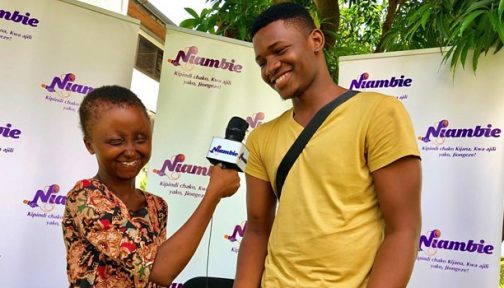
Changing views through radio
Stigma and discrimination are huge barriers that people with disabilities face. Changing people's mindsets is not easy - but a a three-month programme led by BBC Media Action found that leading by example is vital to create real, lasting change.
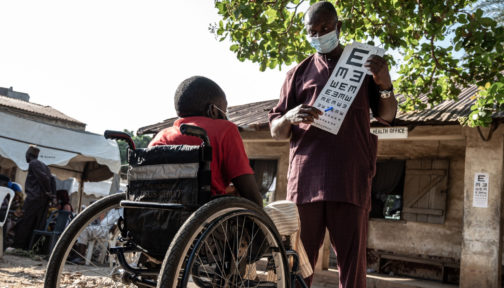
What does behaviour change have to do with inclusion?
Inclusive Futures projects in Bangladesh and Nigeria are trialling different ways to tackle stigma and discrimination faced by people with disabilities.
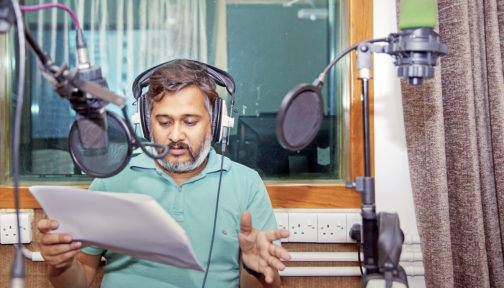
Five steps to shifting journalists’ – and the public's – attitudes to disability
Inclusive Futures partner BBC Media Action trained 150 journalists in Bangladesh to improve how people with disabilities are portrayed in the media. Here's their checklist to help change attitudes towards disability.

